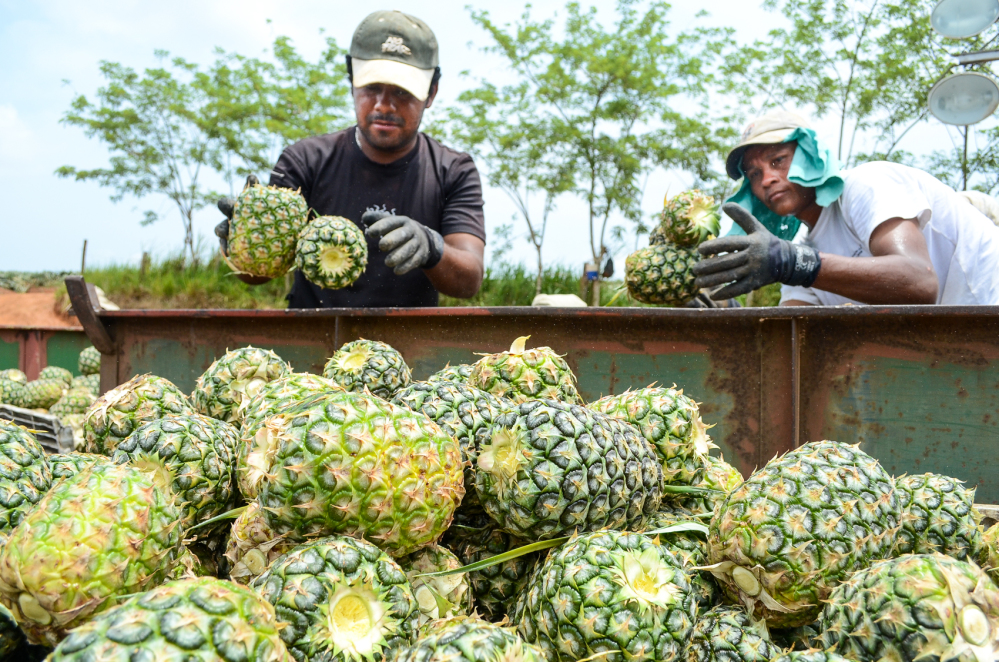
http://www.ticotimes.net/2015/06/07/costa-rica-consumes-agrochemicals-per-hectare-country-world
Agrochemicals are chemicals that are used on farms or plantations for agricultural purposes. Pineapple plantations often use herbicides and pesticides to maximize their profits during the pineapple harvest. These chemicals are applied onto the pineapple fields with small airplanes, tractors, and by hand. Costa Rica is the number one consumer of agrochemicals in the world. The Regional Institute for Studies in Toxic Substances acquired data about Costa Rica’s agrochemical use, which sits at 18.2 kilograms of agrochemicals per hectare. Since 1977, Costa Rica has imported more than 185,000 metric tons of agrochemicals. As many as sixteen different chemical treatments can be needed to grow pineapples. A brief list of these chemicals include: carbofuran, terbufos, paraquat, chloropyrifos, bromacil, diazinon, diuron, and endosulfan. It is not uncommon for these pineapple companies to be accused of contaminating ground and surface water, invading water recharge areas, destroying protected areas around springs and gullies, and violating labor rights. The use of agrochemicals has been linked to health problems in people. In 2010, 146 people were admitted into hospitals due to poisoning from agrochemicals…12 of those people died.
About 70% of the worker on pineapple plantations are Nicaraguan migrants. These Nicaraguan migrants provide a cheap and flexible workforce due to their lack of official papers or visas. The workers are left at the fate of their employers, which whom can have the workers deported at any sign of insubordination. Often times, this prevents the workers from joining a trade union and voicing their concerns about the working conditions. Almost 50% of the workers are hired through subcontractors. These subcontractors provide a low paid and non-unionized work force. This allows the pineapple production companies to avoid direct responsibility of providing unsafe working conditions in the eyes of national and international labor laws.

